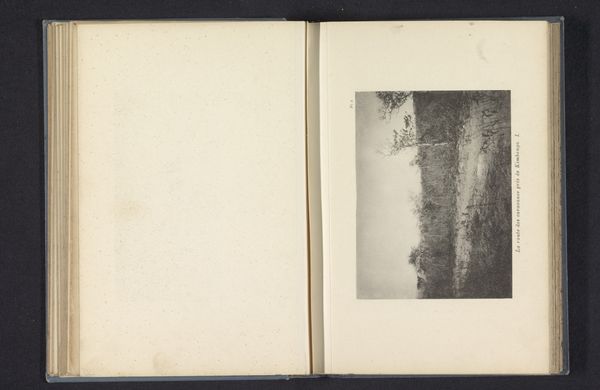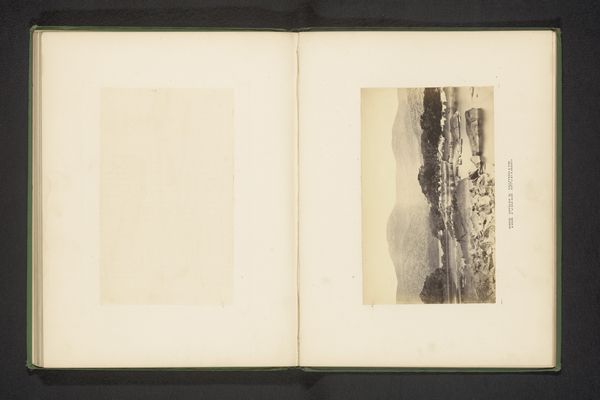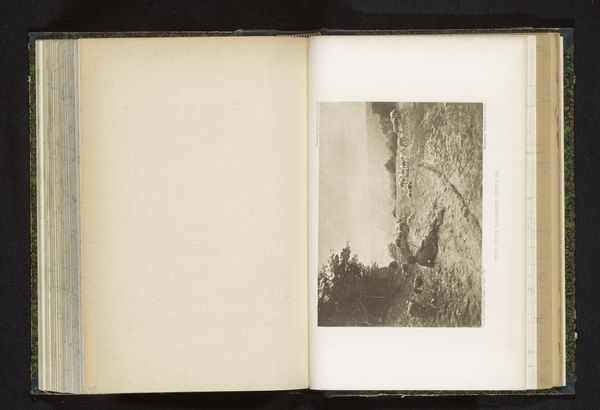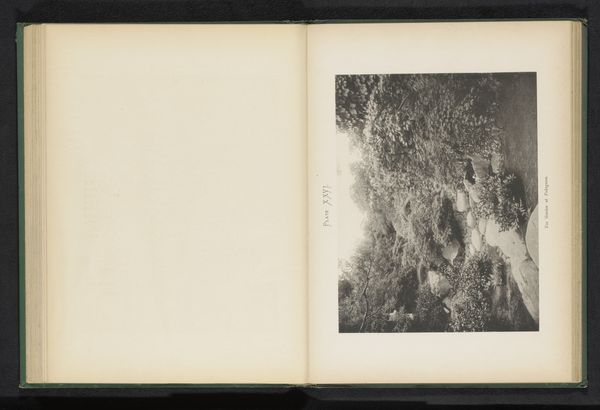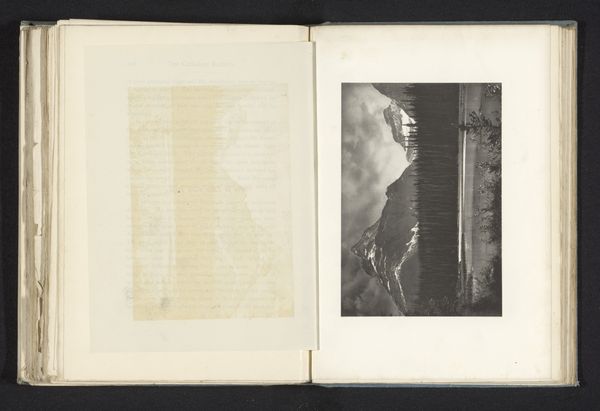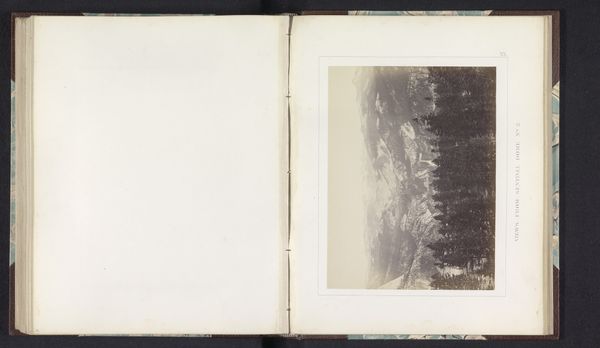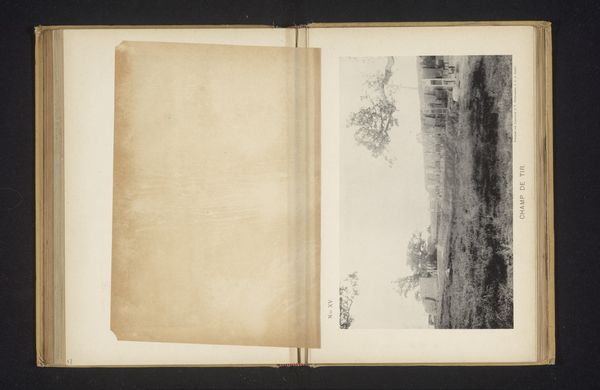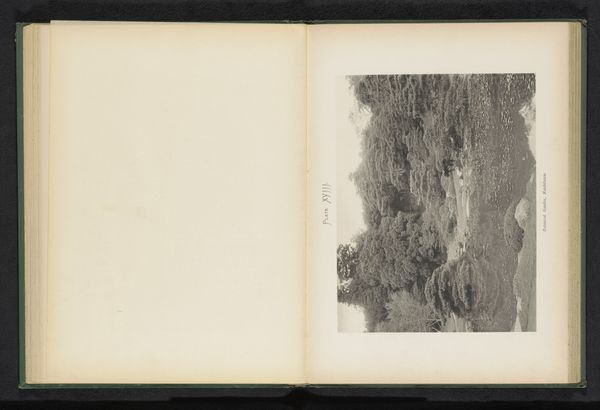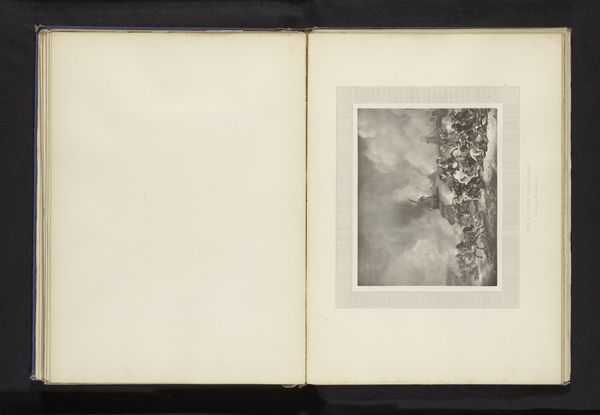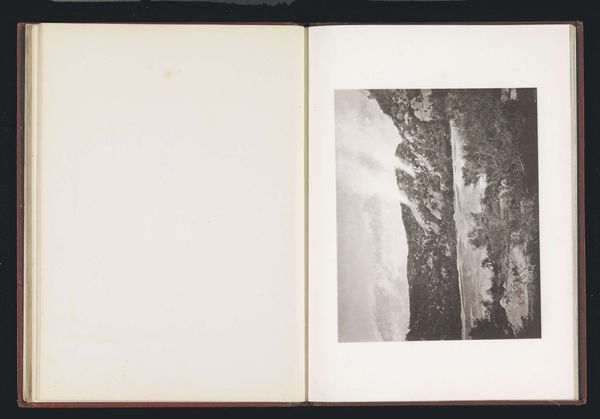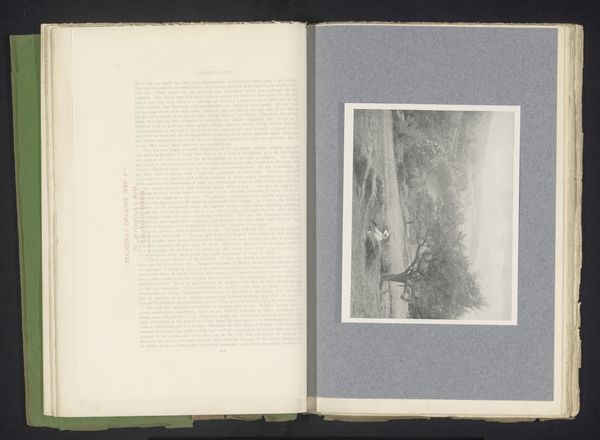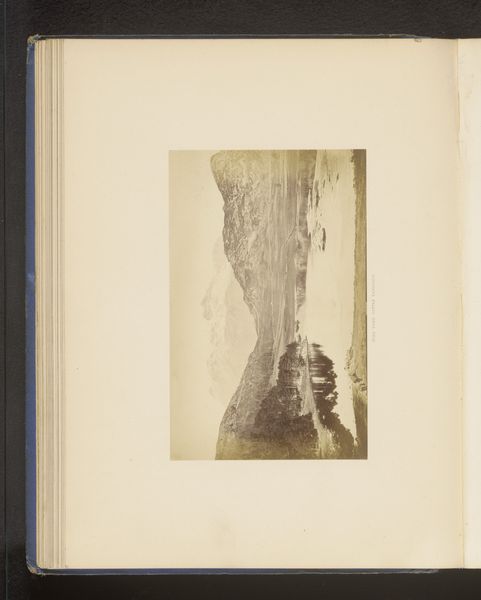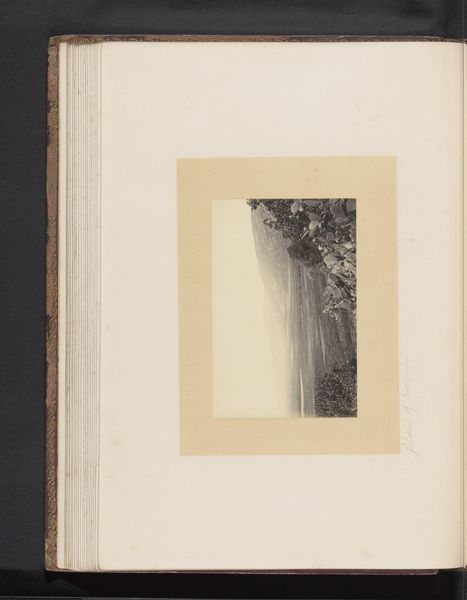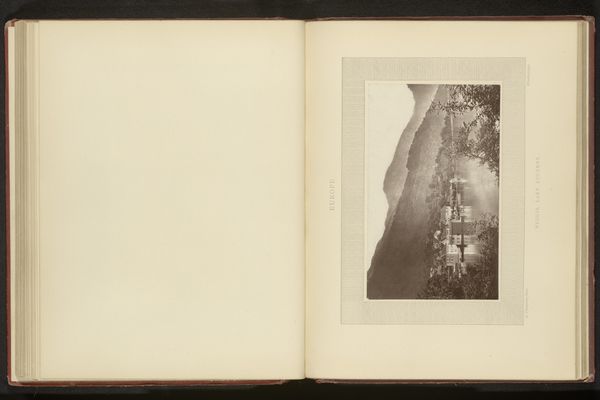
print, photography
aged paper
lake
homemade paper
paper non-digital material
paperlike
sketch book
landscape
paper texture
photography
personal sketchbook
fading type
sketchbook drawing
sketchbook art
Dimensions: height 117 mm, width 168 mm
Copyright: Rijks Museum: Open Domain
Editor: Here we have "Gezicht op de Slachtensee," made before 1899 by Gustav Heinke, presented as a print in a sketchbook. It has a wonderfully muted tone, creating an almost melancholic feeling. What can you tell me about it? Curator: What strikes me is how the photograph's presentation in a sketchbook intersects with ideas around documentation, leisure, and perhaps even acts of resistance within its historical moment. Consider who had access to these landscapes at the turn of the century. How might access to leisure activities been impacted by social class? Editor: That's a fascinating point. So, you're suggesting that this seemingly simple landscape photograph could hint at broader societal issues? Curator: Precisely. Landscape photography and painting, especially during that period, can be interpreted as a statement about ownership, access, and the relationship between humans and nature. Was Slachtensee open to everyone, or a privileged, private space? Editor: It makes me wonder if the act of photographing it, documenting it in this personal sketchbook, was a way of staking a claim, even a subversive one, to this landscape? Curator: Exactly. Consider the social dynamics of the time, the rise of industrialization, and the growing disconnect between urban populations and the natural world. Landscape photography sometimes served as a visual counterpoint, idealizing nature and sparking environmental movements. Editor: This has completely changed my perception of what I initially saw as just a calm photograph! Curator: Good. Never underestimate how acts of looking and recording shape both our present and our understanding of the past. The personal is indeed always political. Editor: I'll definitely keep that in mind moving forward!
Comments
No comments
Be the first to comment and join the conversation on the ultimate creative platform.
